Overview of conventional plastic toothbrushes
Conventional plastic toothbrushes have long been the go-to choice for maintaining oral hygiene. These toothbrushes are typically made from a combination of plastic bristles and a plastic handle, which are both durable and cheap to produce. However, their widespread usage has led to significant environmental concerns.
With an estimated 3.6 billion plastic toothbrushes being used and discarded each year, they contribute to the ever-increasing amount of plastic waste that ends up in landfills and oceans. This has prompted the rise of bamboo toothbrushes as a sustainable alternative to their plastic counterparts.
Introduction of bamboo toothbrushes
Bamboo toothbrushes are gaining popularity as a sustainable alternative to plastic toothbrushes with their renewable handle. Bamboo can be harvested and grown again much faster compared to trees used for wooden toothbrushes. Additionally, bamboo toothbrushes often come with bristles made from biobased materials, further reducing their environmental impact.
Bamboo toothbrushes are much more eco-friendly compared to plastic toothbrushes, which take hundreds of years to decompose. Bamboo brushes are biodegradable and can be composted. They are highly durable and can last as long as plastic toothbrushes which means that fewer toothbrushes are being thrown away, reducing plastic waste.
Moreover, bamboo toothbrushes often come in sleek and stylish designs, adding a touch of elegance to a daily routine. By opting for bamboo toothbrushes, individuals can contribute to a more sustainable future while maintaining excellent oral hygiene.
Environmental Impact

Plastic waste and pollution have become pressing environmental issues, with various negative consequences on ecosystems and human health. The accumulation of plastic waste in landfills and oceans poses a significant threat to wildlife, as animals often mistake plastic for food or become entangled in it, leading to injury or even death. Additionally, the production and disposal of plastic products contribute to greenhouse gas emissions and the depletion of resources.
In the face of these challenges, alternatives such as bamboo toothbrushes have gained popularity due to their numerous environmental benefits. Bamboo, being a fast-growing, sustainable material, provides a renewable and biodegradable alternative to plastic. By choosing bamboo toothbrushes, individuals can reduce their plastic consumption and contribute to the preservation of the environment.
Plastic waste and pollution
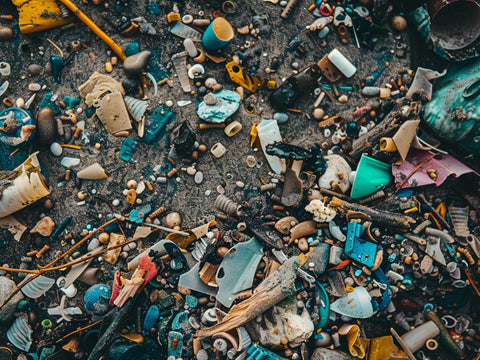
Plastic waste and pollution have had a devastating impact on the environment and marine life. Each year, billions of pounds of plastic find their way into the ocean, causing widespread damage. The problem lies in the long decomposition time of plastic, which can take hundreds of years.
As a result, marine creatures mistake plastic debris for food, leading to ingestion and entanglement. This poses a serious threat to wildlife, causing injuries, suffocation, and death. Furthermore, the chemicals present in plastic can leach into the ocean, contaminating the water and endangering marine ecosystems.
The detrimental effects of plastic waste on the environment and marine life highlight the urgent need for significant action and stricter regulations to reduce and manage plastic pollution.
Benefits of using bamboo toothbrushes

Bamboo toothbrushes offer several benefits, making them a popular eco-friendly choice. Firstly, they help reduce plastic waste as the handles are made from sustainable bamboo. This reduces the need for plastic toothbrushes that often end up in landfills or oceans.
Secondly, bamboo toothbrushes are effective in cleaning teeth. They have bristles that are both soft and durable, providing a thorough cleaning experience. Moreover, bamboo toothbrushes have natural antimicrobial properties. This means they naturally inhibit the growth of bacteria on the brush, promoting oral hygiene and reducing the risk of infections.
The natural antimicrobial properties of bamboo make these toothbrushes a healthier and more hygienic option. Overall, the use of bamboo toothbrushes contributes to minimizing plastic waste, ensures effective cleaning, and harnesses the natural benefits of bamboo's antimicrobial properties.
Material Comparison
When it comes to choosing the best materials for toothbrushes, two key factors to consider are the handle material and the bristle material.
Bamboo handles are known for their eco-friendliness, as bamboo is a sustainable and biodegradable material. Plastic handles, on the other hand, are durable and often more affordable.
Nylon bristles are synthetic and known for their superior durability and flexibility. Natural bristles, such as those made from pig hair, are biodegradable but may be less effective in removing plaque.
Bamboo vs. plastic handle
The key differences between bamboo and plastic toothbrush handles lie in their impact on the environment and disposal options. Bamboo handles are considered a more sustainable alternative to plastic handles due to their biodegradable nature. When disposed of, bamboo handles decompose naturally without leaving behind harmful residues, while plastic handles contribute significantly to the ever-growing landfill waste and take hundreds of years to break down. Moreover, bamboo is a renewable resource that grows rapidly, minimizing the need for excessive deforestation.
To ensure the bamboo used for toothbrush handles is sustainably harvested, certifications such as Forest Stewardship Council (FSC) and Rainforest Alliance can be obtained. These certifications guarantee that the bamboo is sourced from responsibly managed forests, preventing habitat destruction and promoting biodiversity. Additionally, FSC-certified bamboo is harvested in a manner that respects community and workers' rights, ensuring fair and ethical practices.
By choosing bamboo toothbrush handles with appropriate certifications, consumers can support sustainable sourcing practices and contribute to a healthier planet. Overall, bamboo handles not only reduce plastic waste but also prioritize the preservation of natural resources.
Nylon bristles vs. natural bristles

The main differences between nylon bristles and natural bristles lie in their composition and the effects they can have on oral health. Nylon bristles, commonly used in most toothbrushes, offer a smoother brushing experience compared to natural bristles like boar hair. The roughness of boar hair bristles can lead to enamel wear and gum recession if used incorrectly or too vigorously.
When it comes to bamboo toothbrushes, the majority of brands use nylon bristles due to their durability and affordability. However, Sustainable Tomorrow stands out by offering biobased bristles made from castor bean oil. These biobased bristles provide a more eco-friendly alternative to traditional nylon bristles, ensuring a sustainable choice for those concerned about the impact of their toothbrush on the environment.
Sustainability
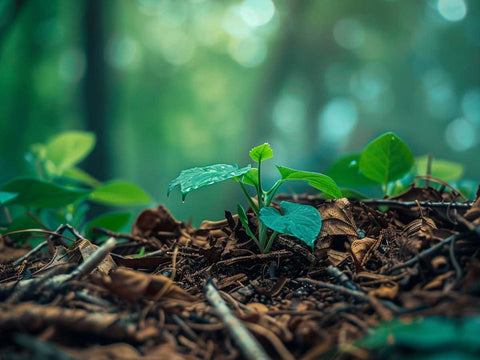
Biodegradability of materials is a crucial aspect of sustainability, as it pertains to the ability of a substance to break down and return to the environment over time. By using biodegradable materials, we can reduce the amount of waste that ends up in landfills or pollutes our ecosystems. These materials can be derived from renewable resources or be made from plant-based sources, offering a more environmentally-friendly alternative to non-biodegradable materials.
On the other hand, sustainable living practices encompass a wide range of actions individuals and communities can take to minimize their impact on the environment while preserving natural resources. This includes reducing energy consumption, minimizing water usage, adopting eco-friendly transportation options, and making mindful choices when it comes to purchasing and disposing of products. Sustainable living practices not only help combat climate change and minimize pollution but also promote a more balanced and harmonious way of life.
Biodegradability of materials

Biodegradability refers to the ability of materials to break down naturally over time through processes such as enzymatic activity, bacterial and fungal digestion, and exposure to the elements.
Several factors influence the biodegradation rates of materials. Material composition plays a crucial role, as some substances, such as organic compounds, easily decompose, while others, like plastics, can take hundreds of years to fully degrade. Environmental conditions, such as temperature, humidity, and oxygen availability, also affect biodegradation, with warmer and moister environments generally promoting faster breakdown. Additionally, the activity of microorganisms, including bacteria and fungi, is vital in facilitating the decomposition of materials.
Numerous industries employ biodegradable materials to reduce environmental impact. For instance, in the packaging industry, biodegradable plastics made from corn or potato starch are increasingly used as alternatives to traditional plastics. In agriculture, biodegradable mulch films made from natural polymers help reduce soil contamination. In the textile industry, natural fibers like cotton and hemp are biodegradable, making them a more sustainable choice.
The promotion of biodegradable materials is essential for minimizing environmental harm, as the use of non-biodegradable materials contributes to pollution and waste accumulation. By utilizing materials that can naturally break down, we can reduce the persistence of pollutants, conserve natural resources, and safeguard ecosystems.
Sustainable living practices
- Recycling: Individuals can reduce their environmental impact by practicing recycling. This includes separating different types of waste, such as paper, plastic, and metal, and ensuring they are sent to the appropriate recycling facilities.
- Energy conservation: To reduce their carbon footprint, individuals can make efforts to conserve energy. This can be done by turning off lights and electronic devices when not in use, using energy-efficient appliances and lightbulbs, and reducing reliance on heating and cooling systems.
- Waste reduction: By implementing practices such as reducing food waste, composting, and avoiding excessive packaging, individuals can significantly minimize the amount of waste they produce. This helps to conserve natural resources and prevent unnecessary pollution.
- Eco-friendly products: Opting for eco-friendly alternatives such as biodegradable or reusable products can greatly contribute to sustainable living practices. This includes using cloth bags instead of plastic ones, utilizing refillable water bottles, and choosing cleaning products with environmentally-friendly ingredients.
- Carbon footprint: Being mindful of one's carbon footprint is crucial in sustainable living. Individuals can reduce emissions by walking, biking, or using public transportation instead of driving, as well as by selecting energy suppliers that use renewable sources.
Dental Health
Bamboo toothbrushes have gained popularity in recent years due to their perceived effectiveness in promoting dental health. They are known for their soft bristles that effectively remove plaque and debris, helping to prevent tooth decay and gum disease. Furthermore, bamboo possesses antimicrobial properties, making it a natural choice for toothbrushes. These properties inhibit the growth of bacteria on the bristles, reducing the risk of contamination and improving oral hygiene.
As an eco-friendly alternative to traditional plastic toothbrushes, bamboo toothbrushes offer a compelling solution for individuals looking to prioritize both their dental health and the environment.
Effectiveness of bamboo toothbrushes
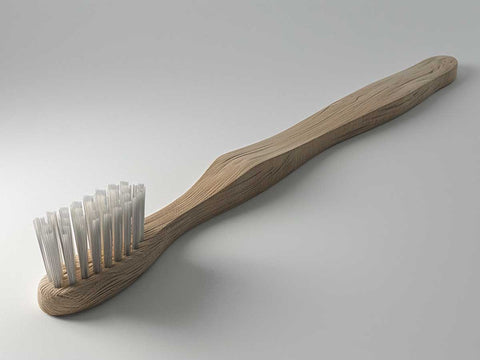
Bamboo toothbrushes are highly effective in cleaning teeth and have several advantages over plastic toothbrushes. They have bristles that are just as effective in removing plaque and maintaining oral hygiene.
Additionally, bamboo toothbrushes contribute significantly to reducing plastic waste as they are made from sustainable materials. The use of bamboo helps minimize the amount of plastic polluting the environment and can make a substantial impact on our planet's health. Moreover, bamboo has numerous benefits such as preventing soil erosion, absorbing CO2, and releasing oxygen, further enhancing its eco-friendliness.
Antimicrobial properties of bamboo
Bamboo has natural antimicrobial properties that make it a beneficial material for toothbrushes. These properties come from a substance called bamboo kun, which helps inhibit the growth of bacteria on the toothbrush. By having these antibacterial properties, a bamboo toothbrush can help maintain good hygiene by preventing the accumulation of bacteria on the bristles. This can reduce the risk of bacterial growth that can cause bad breath and oral infections.
The antimicrobial properties of bamboo also contribute to the durability and longevity of a bamboo toothbrush, as they help prevent deterioration and maintain its cleanliness over time. Additionally, bamboo is a sustainable and renewable resource, making it an eco-friendly choice for toothbrushes.
Oral Hygiene
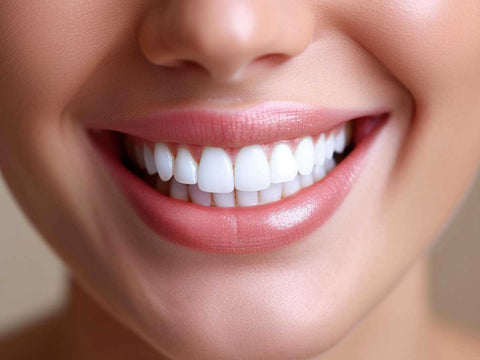
Maintaining good oral hygiene practices is crucial for overall health. Regular brushing and flossing help prevent dental issues such as cavities and gum disease. By removing plaque and bacteria, brushing prevents the formation of cavities while flossing removes food particles from between the teeth, preventing gum disease.
Using fluoride toothpaste and a soft-bristled toothbrush is essential for proper oral hygiene. Fluoride helps strengthen tooth enamel and prevent decay, while a soft-bristled toothbrush is gentle on the gums and teeth. The technique for brushing should involve gentle circular motions on all tooth surfaces and the gum line. Additionally, it is recommended to brush for at least two minutes twice a day.
Flossing should be done once a day, using a gentle sawing motion to move the floss between the teeth and against each tooth surface.

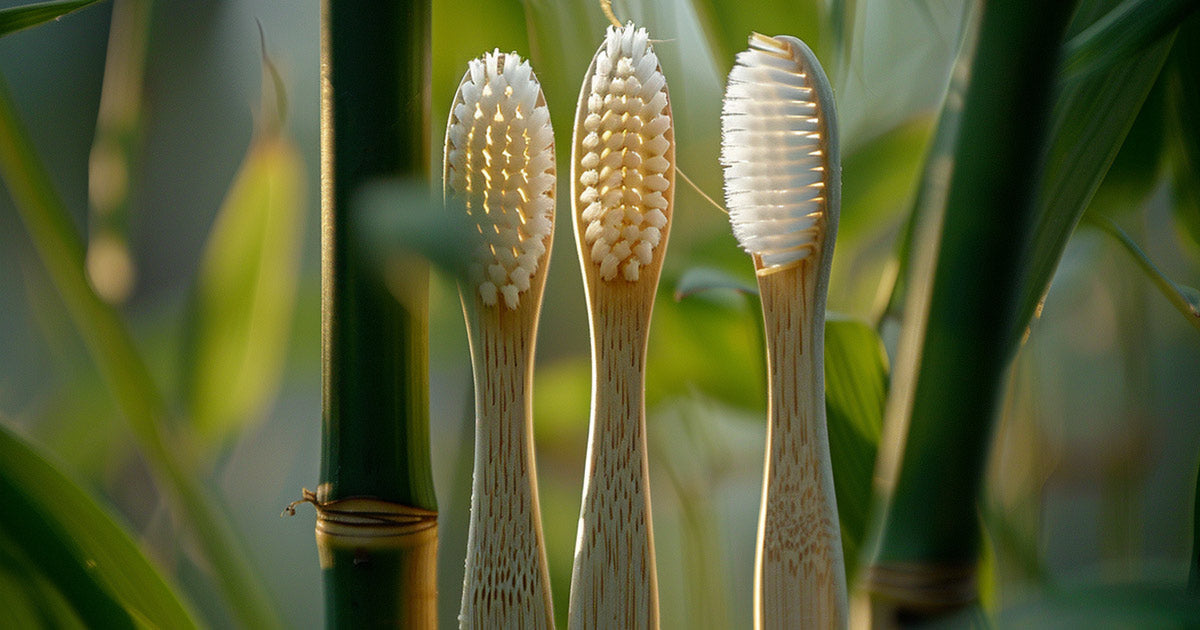
Share:
Does It Matter What Electric Toothbrush You Use?
How Many Teeth Do Humans Have?